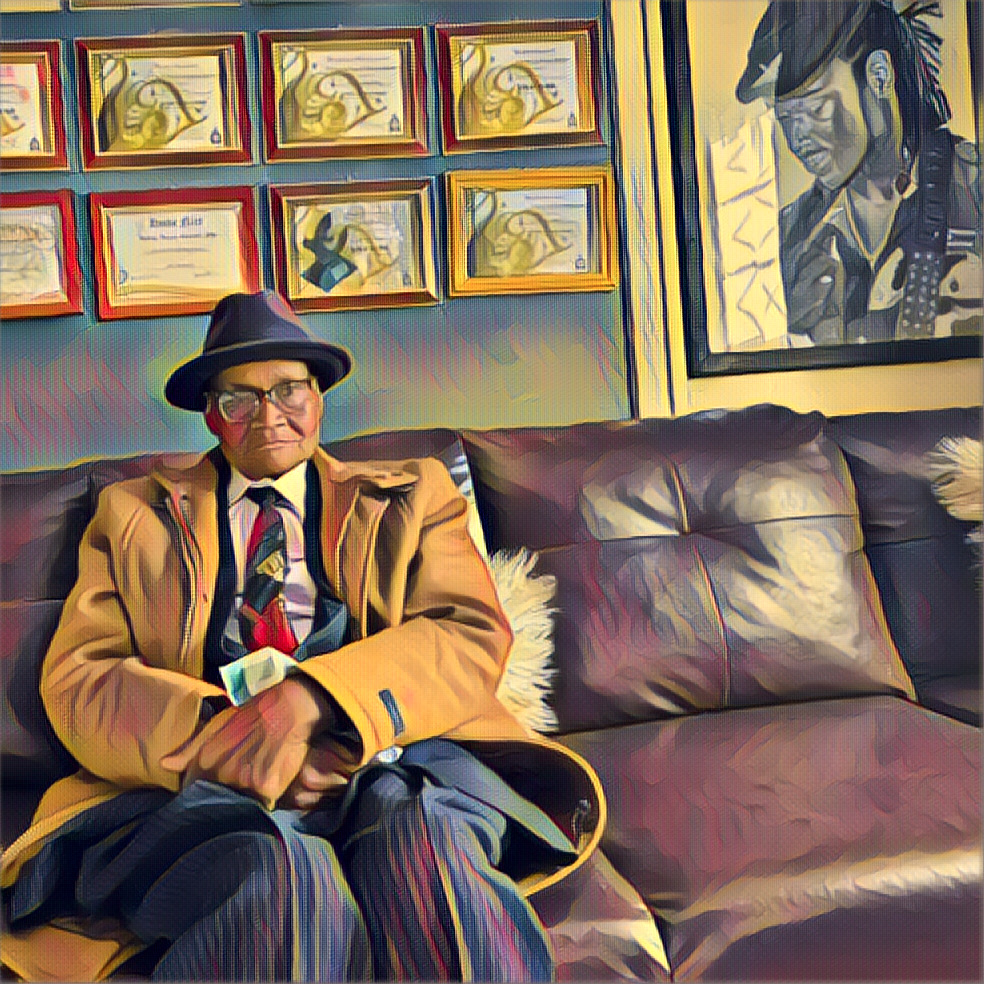In the early hours of today, the arts community was struck by somber news: the father of renowned contemporary artist Jah Prayzah, born Mukudzeyi Mukombe, has passed away. The death of Sekuru John Mukombe, a figure much revered and loved within the family and the community, marks a moment of profound loss not only for the artist but for all who knew him.
The announcement came via a heartfelt statement from Jah Prayzah’s management, expressing the deep sorrow felt by the family and the close-knit circle around them. “It is with a heavy heart that we share the sad news of the passing of Sekuru John Mukombe, the beloved father of Jah Prayzah,” the statement read. The family, grappling with this significant loss, requested privacy during this challenging time, while also acknowledging the outpouring of love and support from fans and well-wishers.
Jah Prayzah, a leading figure in Zimbabwe’s contemporary music scene, is known for his stirring lyrics and vibrant performances that often draw from the cultural heritage of his homeland. His father’s influence and support have been a significant part of his journey as an artist, making this loss even more poignant.
The news of Sekuru John Mukombe’s passing resonates beyond the immediate family, touching the hearts of many in Zimbabwe’s arts and culture community. As an elder and a parent of one of the nation’s most celebrated artists, his legacy is interwoven with the cultural tapestry of the country.
Jah Prayzah’s music, often reflective of the Zimbabwean spirit and its challenges, has garnered him a wide fan base, both locally and internationally. His songs, infused with traditional rhythms and contemporary sounds, speak to the soul of a nation that prides itself on its rich cultural heritage. The loss of his father, therefore, is not just a personal tragedy but also a communal one, felt by all who connect with his music and its roots.
As the community mourns with Jah Prayzah, there is a collective reflection on the role of family and elders in shaping the arts. In African societies, elders are not only caregivers but also custodians of cultural wisdom and history. They play a crucial role in guiding the younger generation, offering wisdom and encouragement. Sekuru John Mukombe’s life and his impact on his son’s career is a testament to this vital cultural role.
The loss is particularly felt in a time when Zimbabwe’s arts scene is navigating through various challenges, including the global pandemic’s impacts. Artists like Jah Prayzah have been at the forefront of keeping the cultural flame alive, often drawing inspiration from their personal experiences and family histories. The passing of a figure like Sekuru
John Mukombe is a reminder of the fragility of these personal and cultural connections that enrich the arts.
Jah Prayzah’s management, while announcing the sad news, also conveyed their gratitude for the unwavering support the family has received from fans and the arts community. “The family appreciates the love and support that you have always shown and are grateful for your continued understanding during these trying times,” the statement further read. This expression of gratitude underscores the deep bond between the artist and his audience, a relationship that extends beyond music to shared experiences and empathetic understanding.
As preparations for Sekuru John Mukombe’s funeral are underway, with details to be shared in due course, there is a sense of communal mourning. Fans and followers of Jah Prayzah, along with fellow artists and cultural practitioners, are coming together in spirit to offer condolences and support. In African culture, the death of a loved one is often a communal event, with the community gathering to offer support, share memories, and celebrate the life of the deceased. Even in times of social distancing and health safety measures, this communal spirit remains strong, manifesting through virtual platforms and social media where tributes and messages of condolence are being shared.
The death of Sekuru John Mukombe is not just a loss of a family member but also a moment of reflection on the role of elders in nurturing and preserving cultural heritage. As Jah Prayzah and his family navigate this difficult period, they do so with the support of a community that values and respects the contributions of elders like Sekuru John Mukombe.
Jah Prayzah’s music, which often encapsulates the highs and lows of the human experience, will undoubtedly carry the memory of his father. In African tradition, ancestors are revered and remembered through stories, songs, and rituals. Sekuru John Mukombe’s legacy, therefore, will live on, not just in the memories of his family but in the cultural narrative of Zimbabwe.
As the arts community in Zimbabwe and beyond comes together to mourn the loss of Sekuru John Mukombe, there is also a celebration of his life and the indelible mark he left on his family and his community. His journey may have ended, but his spirit and legacy continue to inspire and influence, echoing in the music of his son and in the cultural fabric of the nation.
In conclusion, the passing of Sekuru John Mukombe is a somber reminder of the transient nature of life and the enduring power of legacy. As Jah Prayzah and his family mourn this tremendous loss, they do so surrounded by a community that shares in their grief and honors the memory of a beloved father, elder, and cultural figure.


